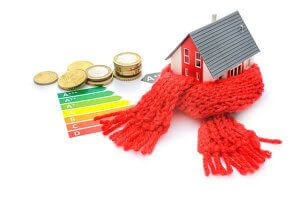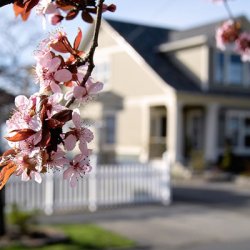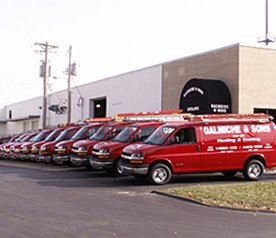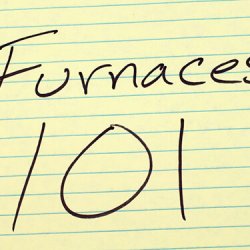
Saving on heating and cooling is something every homeowner can appreciate, but you might not realize just how much an energy efficient HVAC system can save you. In fact, the Department of Energy found that you can see savings up to 35% annually just by upgrading and replacing the right parts of your heating & air conditioning system.
Whether it is replacing or upgrading your entire system or just doing some important maintenance, there are many ways to improve HVAC system efficiency. To learn more or schedule an appointment with our HVAC professionals in St. Louis, contact us online or by phone today.
General Maintenance for an Energy Efficient HVAC
Before we get into retrofitting and upgrading, though, there are some simple maintenance tasks you can perform for a more energy efficient HVAC system.
- Maintain proper airflow: Do not block registers or crowd your HVAC unit, and make sure ducts are clean and free of debris for proper airflow and function.
- Change your air filters: Just like clean ducts, clean air filters help keep your HVAC unit running smoothly. This is possibly the easiest fix to make yourself.
- Get regular professional maintenance checks: Having professional maintenance performed at least every six months will not only give you a more energy efficient HVAC system, but it can also prevent more serious issues from developing out of small problems.
- Educate yourself on common HVAC troubleshooting and maintenance: The more you know about what goes into a well-functioning and energy efficient HVAC unit, the better!
Small Changes and Upgrades

Once you have general maintenance taken care of, there are a few ways you can tweak your heating and cooling system in order to achieve a more energy efficient HVAC system.
- Add or increase insulation: Proper insulation is key to an energy efficient HVAC system. Make sure you have enough insulation in your home, without too many gaps or leaks.
- Tweak your thermostat: Simply setting your thermostat closer to the outside temperature, within comfort, can reduce energy use significantly.
- Power down electronics: Similarly, powering down electronics and appliances when they are not in use prevents the build-up of residual heat, which makes your home easier to cool.
Is It Worth a Major Upgrade?
If you are still not happy with how energy efficient your HVAC system is after these tweaks and tips, it may be worth a more major upgrade. Some possible upgrades include:
- Retrofitting: If you are not ready for a full HVAC replacement, or cannot afford it, retrofitting key components can help. Replacing the compressor, for instance, can give an old system new life. You can also add more control features, such as condenser fan controls, in order to fine-tune your temperature settings and control.
- Programmable thermostats: For even more temperature and energy-use control, consider switching to a programmable thermostat. Programmable thermostat savings can be substantial, and they mean you do not have to constantly change the settings in order to gain a little efficiency.
- Switching to energy efficient HVAC equipment: If your HVAC system is old and dated, a replacement may be worth the cost in energy efficiency alone. Models more than 10 years old are significantly less efficient than modern HVAC equipment.
With all this in mind, you should be well equipped to get the most out of your new, energy efficient HVAC system.
Learn More About Energy Efficient HVAC Systems
If you have questions, get in touch with the heating & air conditioning team at Galmiche & Sons in St. Louis today. We can help assess your HVAC system and recommend other ways to increase energy efficiency and reduce energy use to help you save this winter.












